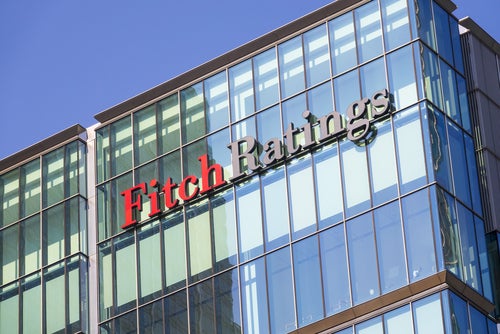
The leasing market in Belgium,
the Netherlands and Luxembourg continues, like most of Europe, to
suffer, at least to a certain extent, under the pall of the
eurozone crisis. Claire Hack reports.
 Investment has fallen, volatility reigns, and
Investment has fallen, volatility reigns, and
although some leasing companies may be yet to feel the full effects
of the continuing maelstrom, it has undoubtedly cast a long shadow
over the industry.
“There has been no growth in the
market. No new participants have entered the market in 2011,” says
Robert Engel, manager of communications at ABN Amro Lease.
How well do you really know your competitors?
Access the most comprehensive Company Profiles on the market, powered by GlobalData. Save hours of research. Gain competitive edge.

Thank you!
Your download email will arrive shortly
Not ready to buy yet? Download a free sample
We are confident about the unique quality of our Company Profiles. However, we want you to make the most beneficial decision for your business, so we offer a free sample that you can download by submitting the below form
By GlobalData“[Some companies] have decreased
considerably in market share and volume over the last year.”
The lack of certainty over the
future of the euro and over the potential for economic growth in
Europe, and within the region specifically, has also taken its
toll.
Some smaller companies have left
the market, according to the Dutch Leasing Association (NVL), and
bank-owned lessors are also starting to pull back.
Georgios Kolovos, pan-European
leasing marketing leader at GE Capital, says: “Some bank-owned
competitors have less appetite or are more cautious in terms of
leasing, with greater focus on the credit quality of the customer,
and not so much on the asset.
“In addition, they are becoming
more selective in terms of partners and pulling out of certain
small vendor relationships.”
Thus far, these shifting attitudes
have not affected the cost of funding, Kolovos says, but in the
short term, some increase in pricing should be expected.
 There are, however, still some reasons to be
There are, however, still some reasons to be
cheerful for market participants in Benelux, as the limited
availability of capital from mainstream sources has meant more
businesses are turning to leasing as an alternative.
“[There has been no] effect on the
results of ABN Amro Lease for 2011,” Engel says.
“We have gained considerably in
market share and volume in 2011, compared to 2010.”
Engel declines to give specific
figures for profits or revenues, but said the company is performing
well, and within its budget for the year. It has also seen a solid
performance in the machinery and transportation equipment segments,
he adds.
“ABN Amro Lease is currently active
in Belgium, Germany and the UK,” Engel says.
“Our company is also looking to
further its international presence abroad, with the intention to
service the international customers of ABN Amro better.”
Engel was also bullish on the
company’s future, despite the potential for further economic
turmoil in Europe and the possibility, at the time of writing, of
the break-up of the eurozone.
“ABN Amro Lease expects that the
results for the last quarter will be very good. This expectation is
backed by our pipeline, which is filled up for the rest of the
year,” he says.
“We further expect to grow our
business for the following year. This means that we aim to increase
our portfolio and market share.”
 ABN Amro has also been dining out on the
ABN Amro has also been dining out on the
success of its e-learning modules, developed as part of a bid to
propagate in-depth knowledge of leasing for every Dutch-speaking
stakeholder in the company.
The company has also developed
digital services for its clients, Engel says, in an ongoing project
to offer customers quicker and more efficient services.
Other players in the region could
be justified in having a similarly confident attitude to ABN Amro,
furthermore, as businesses are forced to assess the need for new
equipment.
“There is strong demand for leasing
solutions in Benelux. Companies haven’t invested a lot in new
equipment and, despite the fear of recession, they cannot delay the
renewal of the equipment further,” Kolovos says.
“For smaller-ticket transactions,
the main alternative to leasing is cash purchase, but the larger
the deal becomes, the more often customers choose leasing.”
Ahead of the last major financial
crisis in 2008, companies would look to take on leasing contracts
at a minimum value of €50,000, according to Kolovos.
Now, however, the threshold is much
lower; companies will turn to leasing for €15,000-€20,000,
especially in the technology and office equipment segment, as well
as for telecoms deals.
Kolovos adds that financing for
medical equipment has been a particularly important segment for the
leasing industry across the Benelux region.
“Political challenges in Belgium
have significantly delayed new investment, while in the
Netherlands, these are positive trends,” he says.
The challenges in Belgium include a
high budget deficit, reportedly now predicted to be 4.2%, above the
original 3.6% target, as well as costs incurred following the
bailout of Dexia.
As for GE Capital itself, its
Minerva extranet platform – a tool that gives vendor finance
partners, resellers and manufacturers a way to provide customised
leasing solutions to clients – is drawing attention from potential
customers, according to Kolovos.
“Despite the limited supply [of
funding], customers are expecting quick responses,” he says.
“The introduction and investment in
our Minerva extranet platform means we get a lot of tailwind to our
business, with quick quotes and instant credit decisions.”
There has also been speculation
over talks between the bodies representing the leasing industry and
government officials, on implementing changes to legislation
specifically designed to help the leasing industry. No details were
available at the time of writing.

The Belgian Leasing
Association
The Belgian Leasing Association
(ABL) is one of the founder members of Leaseurope, and currently
has about 30 members.
This includes ABN Amro Lease, BNP
Paribas Leasing Solutions, BMW Financial Services, and De Lage
Landen.
According to the association’s
annual report for 2010, leasing companies based in the country were
at least somewhat better off than their European neighbours.
The country’s GDP saw an average
growth in real terms of 2% throughout the year, after a fall of
2.7% during the previous year.
The 2010 report also showed that
ABL members achieved total volumes of more than €4bn during the
year, up 6.6% on the previous year.
The rate of penetration for 2010
also grew, climbing to 9.1%, from 8.6% in 2009, but was still much
weaker than in the period between 2002 and 2008.
Now with a budget deficit of 4.2%
predicted for 2011, instability is among the key factors affecting
the leasing industry.
The market must also contend with
the continuing disagreement about how to resolve the eurozone
crisis, as well as potential investor reticence caused by the lack
of a concrete solution, and also the recent bailout of Dexia.
This included the Belgian
government stepping in to buy the bank’s Belgian arm for €4bn,
according to reports at the time.

The Dutch Leasing
Association
Investment from businesses remains
very low in the Netherlands, says NVL secretary general Peter-Jan
Bentein.
Companies are only now beginning to
invest in new equipment as they can no longer put it off, which may
be good news for leasing as they look to less mainstream means of
funding, but as the European crisis rages on, there can be no
guarantees.
Bentein told Leasing Life
that business volumes in the third quarter of 2011 were up by 14.8%
compared with the same quarter in 2010, but declined to give
specific figures for either period.
He also declined to give any kind
of outlook for the year ahead, but added that three companies are
known to have left the Dutch market during 2011.
Even in 2010, signs were beginning
to emerge of a weakening industry in the Netherlands.
“The fact that the Dutch leasing
industry so strongly lags behind other European countries as yet
has no good explanation,” NVL’s annual report said.
“The financial crisis in the
relevant market segments for leasing is taking longer than
expected, and it is still unclear how long this will last.”
In other words, the effects of the
crisis could well be felt in 2012 and beyond, as politicians
struggle to reach a consensus on how best to remedy the situation
across Europe.
“As a result, the propensity to
invest declined, with consequences for the Dutch leasing industry,
resulting in a total
production level of €3.77bn, compared with €4.5bn in 2009,” the
statement added.
Figures broken down by industry
segment are only available on a yearly basis, Bentein said, meaning
there is no data available yet for the whole of 2011, but most
signs point to a further decline in volumes.
The greatest challenge will be to
achieve a turnaround in production volumes, according to Bentein,
and bring them from reduction to growth, although he added that
this has so far been successful.
Luxembourg Association of
Vehicle Rental
Luxembourg, as one of the smallest
nations in the world, has no association specifically dedicated to
leasing.
The Grand Duchy does, however, have
a vehicle rental association (FLLV), which is a member of
Leaseurope.
The FLLV is also a member of the
Confédération Luxembourgeoise du Commerce, and has more than 20
members of its own, including KBC Autolease Luxembourg, and GE
Capital Fleet Services.
The total fleet, however, comes to
just 31,000 vehicles, and in 2010, this represented about a quarter
of domestic light vehicle registrations.
The association is also described
as having considerable influence on the Luxembourg economy.
Because the industry in Luxembourg
is so small compared with the rest of Europe it has not been the
subject of as many headlines as its neighbours in Belgium and the
Netherlands.
Very little data is available on
the market, meaning it’s difficult to gauge how it has fared as a
result of the most recent financial turbulence.
As a result of the decline in the vehicle segment, however, as
well as nervousness over the future of the eurozone, indications
suggest the leasing industry in Luxembourg will face all the same
struggles as elsewhere.







